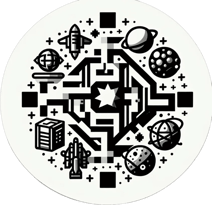Mastering Smart Work: A Step-by-Step Guide to Working Smart, Not Hard
Multiverse
1/15/20254 min read


Understanding Smart Work vs. Hard Work
In today's fast-paced world, the distinction between smart work and hard work has become increasingly significant. While hard work has traditionally been associated with long hours and relentless effort, smart work emphasizes efficiency and effectiveness in achieving goals. Smart work is characterized by strategic planning, prioritization, and the adept use of technology. By leveraging these elements, individuals can accomplish more in less time, ultimately leading to improved productivity and work-life balance.
At the core of smart work lies the principle of efficiency. This approach encourages individuals to focus on high-impact tasks that drive results rather than getting caught up in mundane activities that do not significantly contribute to their objectives. For example, by utilizing project management tools or automation software, workers can streamline their processes, allowing them to focus on strategic decision-making rather than menial tasks. Furthermore, smart work promotes the idea of continuous learning and adaptation, ensuring that individuals remain agile in an ever-evolving work environment.
On the other hand, hard work often presents various challenges, including the risk of burnout and diminished returns on effort. Individuals who labor tirelessly without adopting smart work strategies may find themselves working longer hours for minimal results. This can lead to frustration and disengagement, ultimately hindering their productivity and overall job satisfaction. Recognizing the downsides of hard work is crucial for fostering a sustainable career path. By shifting to a smart work mindset, individuals can achieve their goals with less strain, enhancing both their effectiveness and well-being.
Embracing smart work does not negate the value of effort; rather, it redefines how that effort is applied. By understanding and implementing the principles of smart work, individuals can transform their approach to work, leading to a more fulfilling and productive professional life.
Identifying Your Goals and Priorities
Establishing clear goals and priorities is a fundamental step toward achieving smart work. By defining what you want to accomplish, you lay down a roadmap that guides your daily activities and decisions. Goals can be categorized into short-term and long-term objectives, providing a structure for your efforts. Short-term goals often include tasks that can be completed within days or weeks, while long-term objectives may span months or years, such as career advancements or significant projects.
To effectively identify these goals, employing the SMART criteria can be highly beneficial. This model suggests that goals should be Specific, Measurable, Achievable, Relevant, and Time-bound. For instance, instead of setting a vague goal like "improve skills," a SMART goal would specify, "complete a data analysis online course within three months." This approach not only clarifies the intent but also allows for progress tracking, making it easier to stay committed.
Additionally, incorporating prioritization techniques can significantly enhance productivity. The Eisenhower Matrix is a valuable tool for categorizing tasks based on urgency and importance. By positioning tasks into four quadrants—urgent and important, important but not urgent, urgent but not important, and neither urgent nor important—you can allocate your time and resources more efficiently. This method ensures that you focus on what truly matters, reducing the tendency to become overwhelmed by less critical tasks.
In essence, by clearly identifying your goals and applying methods for prioritization, you create a framework that not only facilitates smart work but also aligns your daily actions with your broader aspirations. Such clarity is essential for making informed decisions and optimizing your overall productivity.
Implementing Effective Strategies for Smart Work
To transition from traditional work habits to smart work practices, it is essential to embrace a variety of effective strategies that enhance productivity while reducing stress. One critical approach is delegation, which involves assigning tasks to others based on their strengths and expertise. By recognizing that you cannot do everything alone, you allow team members to contribute their skills, thereby maximizing overall efficiency. Effective delegation not only relieves your workload but also empowers colleagues, fostering a collaborative work atmosphere.
In addition to delegation, automation plays a pivotal role in streamlining workflows. With advancements in technology, tasks that previously required significant time and effort can now be automated. Tools such as project management software and automated email responses can save countless hours, freeing up energy for more strategic undertakings. By integrating automation into daily processes, professionals can focus on high-value activities that drive results.
Time management stands out as another fundamental strategy for smart work. Prioritizing tasks based on urgency and importance is essential for maximizing output. Techniques such as the Pomodoro Technique, where work is broken into focused intervals followed by short breaks, facilitate sustained concentration and efficiency. Utilizing planners or digital calendars can further assist individuals in organizing their schedules effectively, avoiding overwhelm, and ensuring adherence to deadlines.
The creation of a conducive work environment cannot be overlooked. A well-organized workspace, free from distractions, significantly enhances productivity. This may include an ergonomically designed setup, minimizing noise disturbances, or even optimizing digital tools for better focus. Case studies reveal that individuals who make these adjustments often report higher levels of engagement and output. By implementing these strategies — delegation, automation, effective time management, and a conducive work environment — professionals can master the art of smart work, leading to greater achievements and satisfaction in their careers.
Evaluating Progress and Adapting Your Approach
To truly master the art of working smart, it is essential to regularly evaluate your progress and adapt your approach accordingly. This ongoing assessment ensures that your methods align with your goals and reveals opportunities for improvement. Establishing a routine for reflection can significantly enhance your productivity levels and help identify any bottlenecks in your workflow.
A productive evaluation strategy typically begins with setting measurable objectives. By clearly defining what success looks like for each task or project, you can create a baseline against which to measure your progress. Utilize tools such as productivity journals, digital tracking apps, or project management software to document your progress systematically. By doing so, you facilitate easier identification of patterns in your performance, enabling you to pinpoint areas needing adjustment.
Another critical aspect of evaluating progress involves seeking feedback. Engaging colleagues, mentors, or supervisors can provide valuable insights into your work process. Constructive criticism offers an external viewpoint that may uncover blind spots you might not have noticed. Make it a point to request regular feedback after the completion of significant tasks or at project milestones, as this promotes a culture of continuous learning and improvement.
Adapting your approach based on these evaluations is equally important. When faced with obstacles or stagnation in productivity, consider experimenting with different strategies or tools. This might include altering your workspace, changing your time management techniques, or even reassessing your priorities. Embracing flexibility is pivotal in maintaining a smart work ethic that transcends challenges.
Ultimately, a reflective and adaptive mindset fosters a growth-oriented perspective, ensuring long-term success in your pursuit of working smart rather than hard. Regular assessments, combined with feedback and willingness to adapt, empower you on the journey toward enhanced productivity and effective goal achievement.
